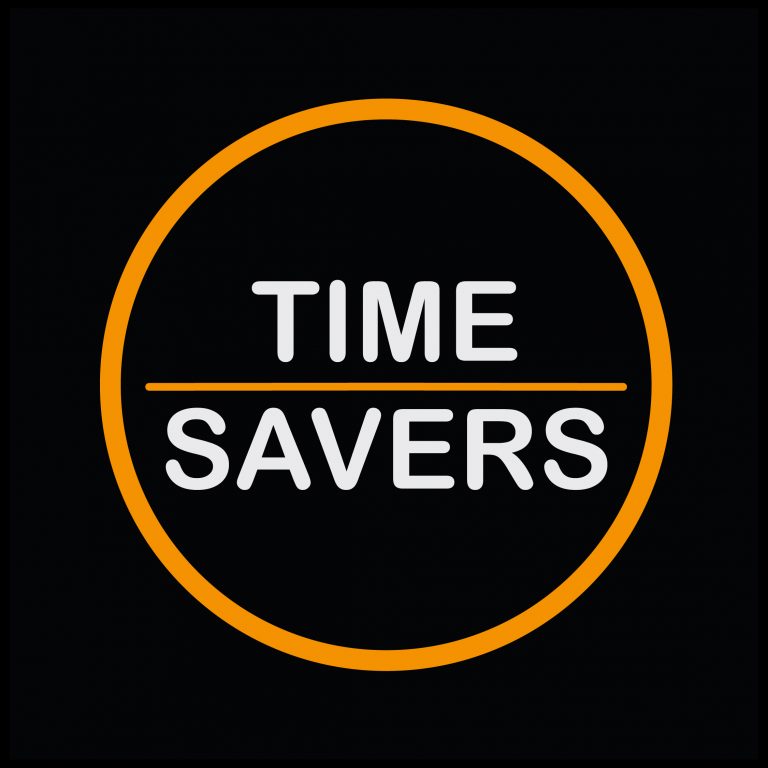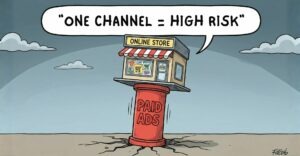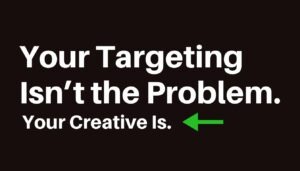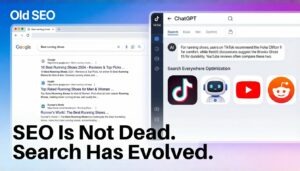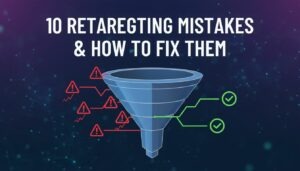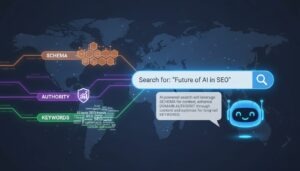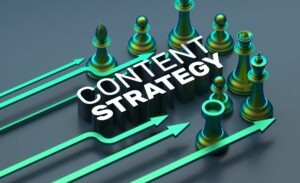If you’re a business owner, freelancer, or digital marketer, you’ve probably asked yourself this question: Should I focus more on SEO or PPC in 2025?
You’re not alone. With marketing budgets tighter and competition fiercer, making the right decision between Search Engine Optimization (SEO) and Pay-Per-Click (PPC) advertising is more important than ever. Let’s break it down in simple terms and help you figure out what’s best for your business.
What Is SEO in 2025?
SEO (Search Engine Optimization) is all about improving your website so that it ranks higher in organic search results. In 2025, SEO is not just about keywords and backlinks. It’s about user experience, helpful content, mobile-first design, and earning trust with Google’s evolving AI algorithms.
Think of SEO as a way to build your brand’s reputation with both people and search engines. Google’s algorithms are smarter than ever. They look for real value, not just keyword stuffing or shady backlink tactics.
For example, if you run an online store, writing a detailed blog post that answers a customer’s question can help you show up in search results. If your website loads quickly and works well on mobile, Google sees that as a positive signal too.
SEO Trends in 2025
- Helpful Content Wins: Google rewards websites that truly help users. Writing useful blog posts and product pages is a must.
- E-E-A-T Still Matters: Expertise, Experience, Authoritativeness, and Trustworthiness are essential. If your content is written by people who clearly know their topic, it’ll do better.
- Voice Search & AI Tools: More people use voice assistants like Siri or Alexa to search, so natural-sounding content is more important than ever.
- Core Web Vitals: Your site needs to load fast, be mobile-friendly, and easy to navigate. This is no longer optional—it’s expected.

What Is PPC in 2025?
PPC (Pay-Per-Click) is paid advertising. You bid on keywords, and your ad appears when people search for them. You only pay when someone clicks. This can include ads on Google, YouTube, Meta, TikTok, and more.
In 2025, PPC has become more automated, but also more competitive. Ad platforms use machine learning to decide when and where your ads show. If you give the system the right data and creative, it can do a lot of the heavy lifting.
For example, if you run Facebook Ads and Google Performance Max, the platforms will try to find people most likely to convert. You just need to give it good copy, visuals, and clear goals.
PPC Trends in 2025
- Smart Campaigns: Google uses machine learning to manage bids, placements, and targeting. You just choose your goal.
- Performance Max: A powerful campaign type that shows your ads across Search, Display, YouTube, Discover, and more.
- First-Party Data Is Gold: With privacy rules growing stricter, the data you collect from your own customers (email lists, website behavior) is more valuable than ever.
- Video & Visual Ads Dominate: People respond to images and videos faster than text. If you’re not using visuals in ads, you’re likely missing out.
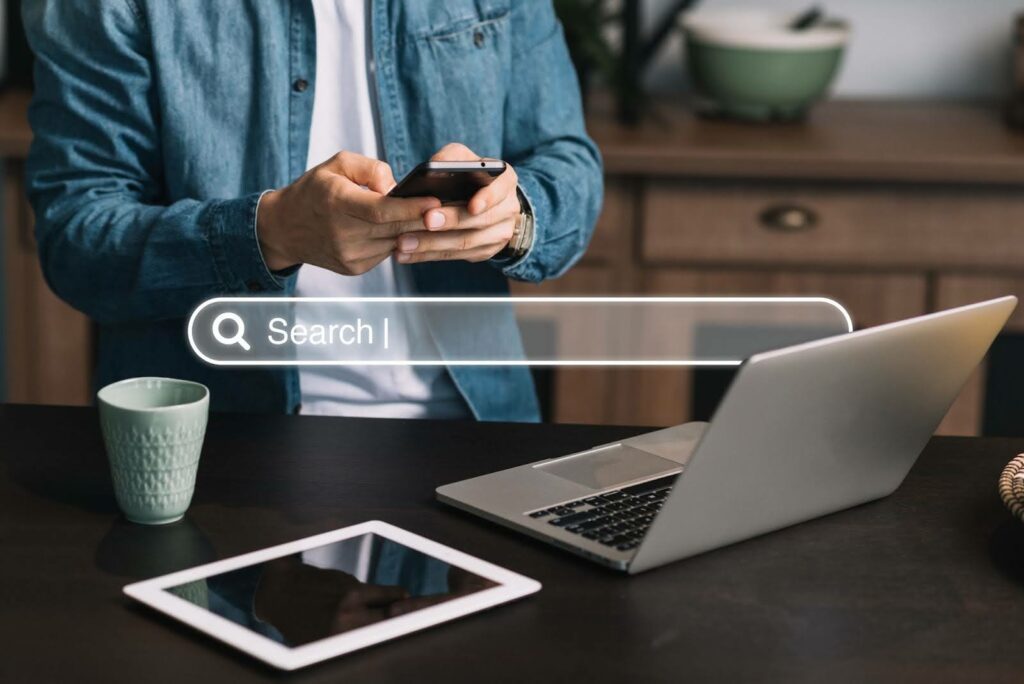
Pros and Cons of SEO in 2025
Pros:
- SEO drives traffic for free—no need to pay every time someone clicks
- It builds long-term trust with search engines and users
- You’re not depending on ad platforms, which can change their rules anytime
Cons:
- SEO takes time—it’s a long-term game
- You need to keep creating new content and optimizing old pages
- In very competitive industries, ranking can be difficult and slow
SEO works best when you’re ready to commit to content and steady improvement. It’s not a quick win, but it pays off over time.
Pros and Cons of PPC in 2025
Pros:
- You can get traffic and sales almost instantly
- You have control over how much you spend and who sees your ads
- PPC is great for testing new ideas, products, and offers quickly
Cons:
- Once you stop paying, the traffic disappears.
- You need to keep optimizing—bad targeting can waste money fast
- Competition can drive up costs, especially in popular industries
PPC is ideal if you want to scale quickly, launch a campaign fast, or test new messages. But it does require an ongoing budget.
SEO vs. PPC: Which One Should You Choose?
Here’s the truth: It depends on your goals, budget, and patience.
Choose SEO if:
- You want to build a long-term digital presence
- You’re willing to wait 3–6 months for steady traffic to grow
- You have helpful content, a great product, and time to invest
Choose PPC if:
- You need results right now—leads, sales, or traffic
- You’re launching something new
- You’re okay spending money to get clicks and data quickly
Best Option?
Many successful brands do both.
Use PPC to:
- Get early feedback on messaging
- Test landing pages and offers
- Quickly boost visibility
Use SEO to:
- Build authority
- Rank for more search terms over time
- Save money on traffic in the long run
Final Thoughts
In 2025, SEO and PPC are both essential parts of a smart marketing strategy. SEO helps you build trust and grow organically. PPC helps you move fast, test ideas, and bring in immediate results.
If you’re doing your own marketing as a business owner or freelancer, start small and track what works. You don’t have to master everything at once. Try one SEO blog per week and one small PPC campaign per month. Learn, adjust, and grow.
When in doubt, ask for help. A trusted marketing partner can help you avoid mistakes and get better results.
Remember: It’s not SEO vs. PPC—it’s SEO and PPC working together.
Here’s to smarter marketing in 2025! 🥂
FAQ
1. Can I do both SEO and PPC at the same time?
Yes, and many successful businesses do. Use PPC for quick wins and SEO for long-term growth. Together, they create a stronger digital presence.
2. Is SEO really free if I’m doing it myself?
It doesn’t cost money to get clicks, but you’ll invest time in writing content, optimizing pages, and staying up-to-date with best practices.
3. What’s the biggest mistake people make with PPC?
Not tracking results. You need to measure cost-per-click, conversions, and return on ad spend to know if it’s working.
4. How long does it take to see SEO results in 2025?
Most businesses see improvement in 3–6 months, but it depends on the competition and how consistently you work on it.
5. Should I hire someone or do it myself?
If you have the time and interest, you can start on your own. But if you’re short on time or want faster results, a freelancer or agency can help you avoid trial and error.

